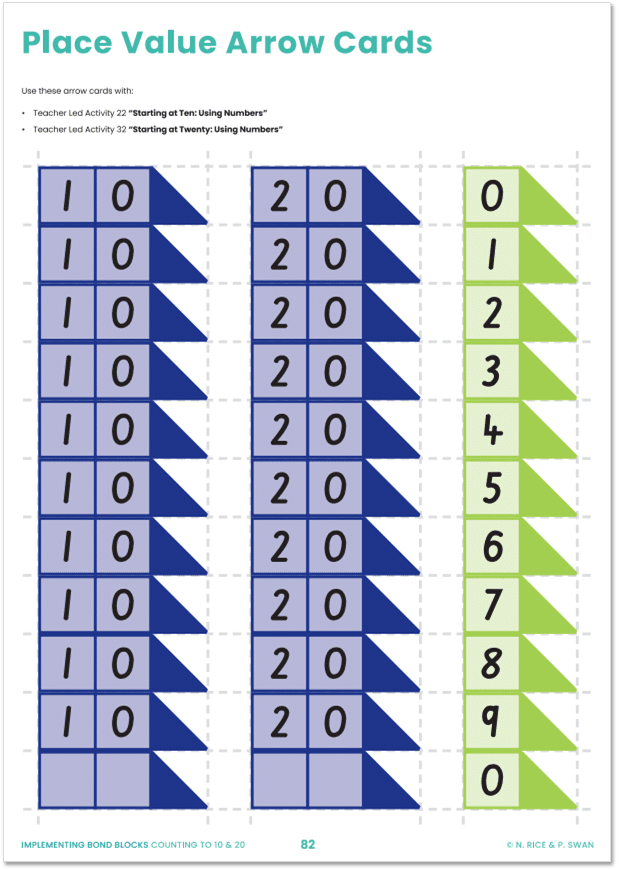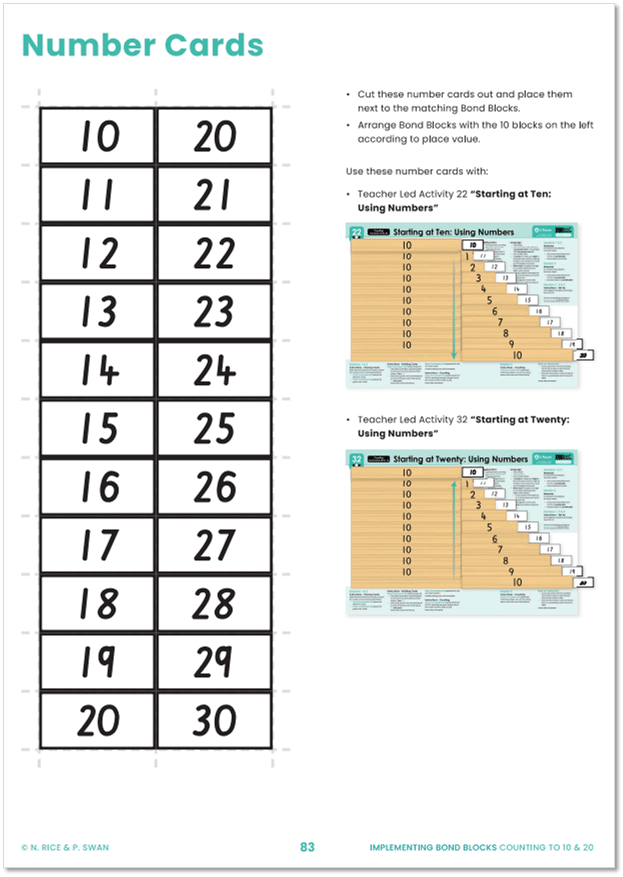22) Starting at Ten: Using Numbers
Counting Forwards 10 to 20

Understanding Activity
This is an ‘understanding’ (proficiency strand) activity.
Please refer to the instructions in the appropriate Implementation Planner for your context.
Mathematics
- Develop fluency counting forwards in the correct order from 10 to 20.
- Identify numbers from 11 to 19 as a two-part bond made of 10 plus a single-digit number.
- Connect the length of the Bond Blocks, number name and numeral.
Language
- One longer
- One more than. Later introduce “one greater than”. For example, “17 is one greater than 16”.
- One number after.
- A number is made up of digits in the same way a word is made up of letters. The number 16 is made up of the digits one and six.
- Place value: The place of a digit in a number determines the digit’s value (worth).
- In the number 16 the digit one is in the tens place so is worth one ten, ten.
- The digit six is in the ones place so is worth six ones, six.

Differentiation
A little easier
Implementation Option B
Many students benefit doing this week over five sessions, instead of three. This plan is listed above under the heading “Implementation Option B”.
This is the video for Tuesday. Watch it after the Session 1 video, before the Session 2 video.
A little harder
Write the Number
Player One builds the number using the arrow cards, saying “tens, then one”.
Player Two writes and says the number.
Error Correction
Please note Josh’s errors in this video. I have his permission to share them. I chose to put them in the ‘little harder’ video on purpose. His understanding of place value was ready to be extended at the ‘harder’ level. This is different to the skill of digit formation, with which he is still developing fluency.
- My main focus was writing using place value, writing the ‘tens digit, then ones digit’.
- Digit formation was a secondary focus here.
When Josh made both errors (place value and digit formation) I chose to correct my main focus only. If I had have corrected both, at the same time, his productive disposition and engagement would have suffered. Every child is different. 🙂
AAA
P


